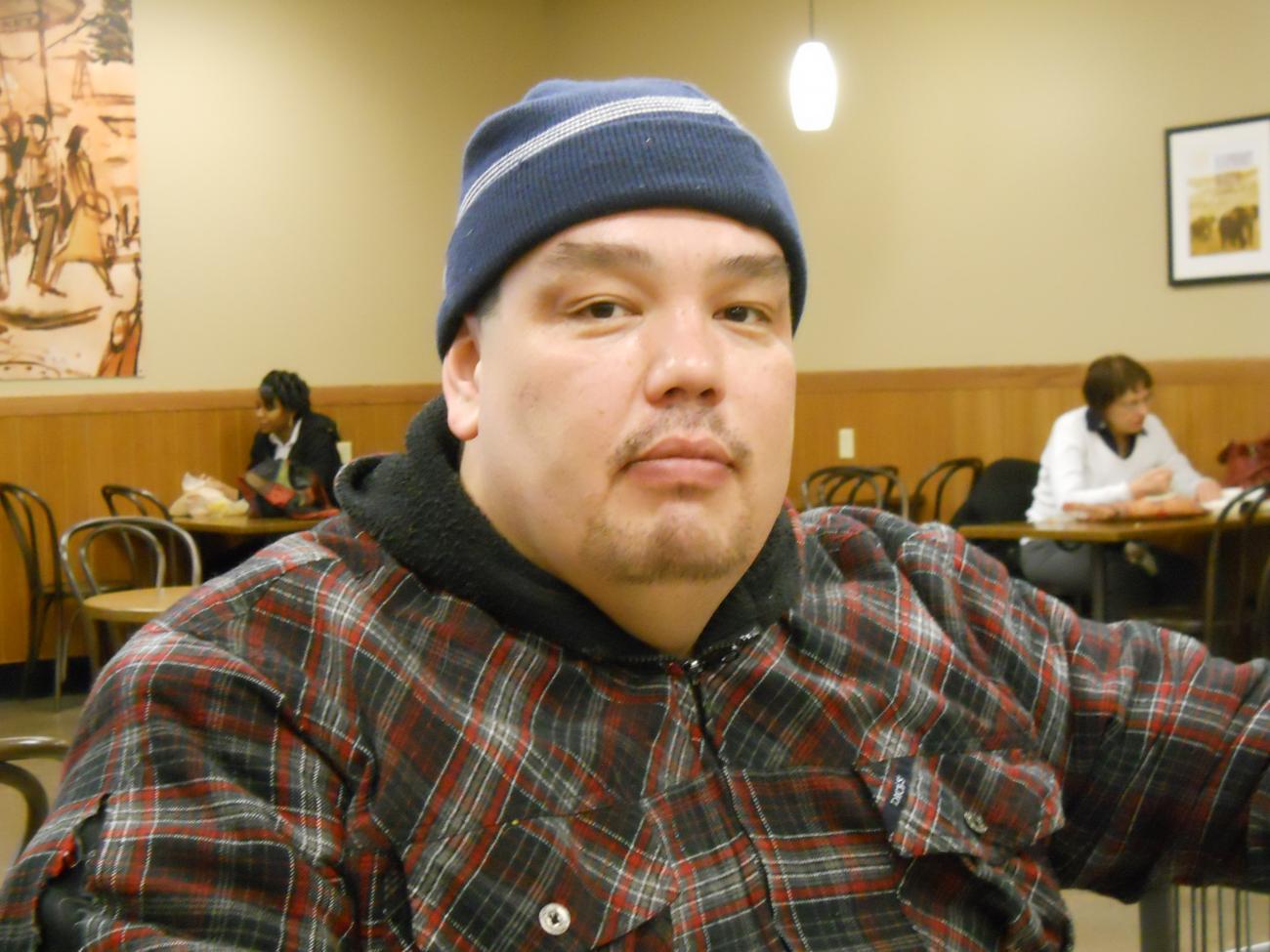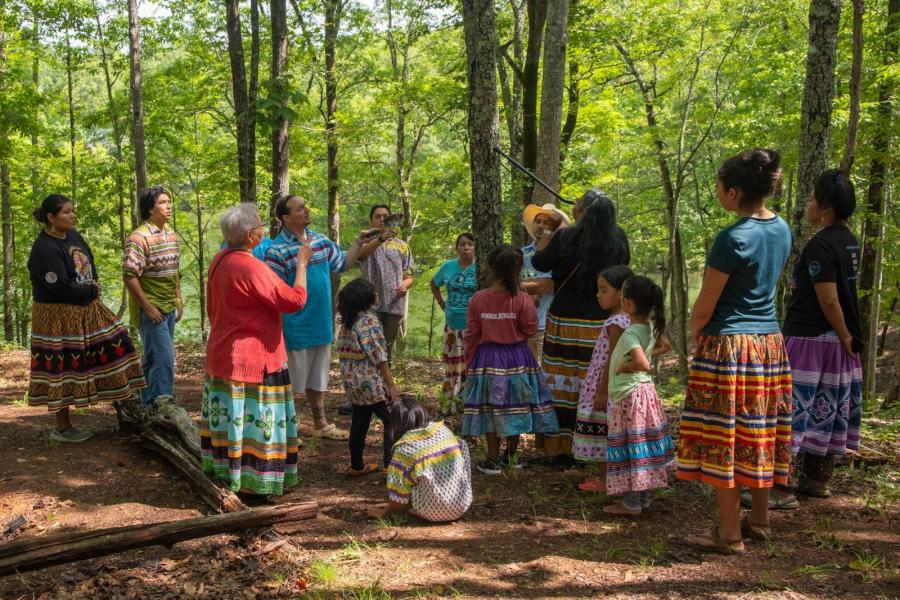
By Matthew Gilbert
Most would say Daniel Lum has a lot on his plate. The soon-to-be-published author and father of five has bills, rent payments, an occasional family crisis to resolve, friends to help, his parents to assist, his two dogs, and perhaps a move to Anchorage to start a restaurant; but beyond these countless responsibilities, the Inupiaq man magically finds time to fight for the Arctic Ocean.
Lum doesn’t see as many Native people at the hearings and meetings on Arctic drilling as he would like, and doesn’t have an army, but he fights on to save the Arctic Sea life, whether it’s through making public comments or writing a book.
Asked how his one-man campaign against offshore drilling started, Lum says, “A couple of years ago my son and I went to a hearing on offshore, my son testified too. Ever since then I’ve been involved.”
Arctic offshore drilling
The Arctic Ocean splits in half at Barrow with the Chukchi Sea extending west to Point Lay, Point Hope, and Russia and the Beaufort Sea extending east to Kaktovik and Canada. A 2011 report by Northern Economics and the Institute for Social and Economic Research at the University of Alaska estimates Alaska’s offshore to hold 27 million barrels of oil and 132 trillion cubic feet of natural gas.
According to Rigzone.com, a member-based worldwide website on oil and gas industry information, Shell began drilling the Burger-A well in the Chukchi Sea and the Sivulliq well in the Beaufort Sea last summer, but Shell had to interrupt drilling in August to avoid sea ice, Dow Jones reported on September 11, 2012.
Lum says, "Royal Shell made pre-drilling holes on the ocean floors of the Chukchi, but didn’t have a functioning capping system, so they couldn’t go to producing depths. They only drilled a few hundred feet down and stopped.”
Shell’s summer 2013 plans for the Chukchi and Beaufort Seas are now stalled due to the breakdown of its two Arctic drill rigs. It plans to tow the two rigs to Asian ports for repairs and will probably not be ready for development in summer 2013, according to the Wall Street Journal article "Shell’s Plan for Arctic Drilling In Doubt" published on February 11, 2013.
The article also states that the company looked for rigs to replace the broken rigs, but have few vessels able to handle the harsh elements off Arctic’s North Slope. “If they have new rigs, they’re going to have to get new permits and that’s going to mean more hearings,” Lum says. He is ready to attend those possible future hearings and give proper comments on the danger offshore development poses to sea life.
Royal Dutch Shell PLC, ConocoPhillips, and Statoil all hold active leases in the Chukchi Sea and has found a friend in Senator Mark Begich from Alaska. Senator Begich is the Chairman of the Senate Subcommittee on Oceans, Fisheries, and Coast Guard and has assisted Arctic drilling by chairing field hearings in Anchorage on the development season and pressuring government agencies to improve performances in the Arctic, so drilling can come underway sooner, according to a February 18, 2013 article in Oil & Gas Journal.
Arctic Slope Regional Corporation
Lum knows by voicing opposition to offshore development he will not be making friends among some Alaska Native Corporations. It’s courageous for any Alaska Native to stand against their own corporation for what they believe is wrong, especially the most successful and powerful one--the Arctic Slope Regional Corporation (ASRC). The company’s website says very little about offshore development, but only hints at the beneficial prospect of it. Instead ASRC speaks of their land operations in Alpine and the Arctic National Wildlife Refuge.
“Our Native Corporation says it supports subsistence but on the other hand, they support offshore development, which could destroy subsistence whaling, hunting, and fishing.” Daniel says.
Lum’s war
Lum says it will take only one VLOS (very large oil spill) to contaminate the ocean system. He’s attended numerous hearings, meetings, and teleconferences over the last two years, voicing and writing opposition against offshore by studying the permitting and writing and speaking accordingly, protection of the marine life and Inupiaq way of life was the central message.
Last summer, Lum appealed the air permit decisions granted to Shell by the Environmental Protection Agency, on the grounds of failure to provide any proven spill response program, and excessive rig emissions. Nevertheless the drilling plans were approved and development moved forward, until the rigs broke down.
Asked about the stance and politics of the Inupiaq of the North Slope--whether they are for or against offshore, Lum says, “People who tend to be for it are often with the corporation and the ones against are the subsistence users.” Lum didn’t see any real momentum and speed from organizations, advocacy groups, and activists, so he prefers to work alone. He claims he works best alone. He will work alone and will continue fighting even if his voice was not heard loud enough by Shell, as it happened last summer.
A day in the life of Daniel Lum
Lum divides his time evenly by caring for his five kids, working on various issues involving offshore, and writing his books and articles, and tries to help out friends and family when he can, "I help out friends with a place to stay for the night or a ride across town. I quit drinking and this has made me more effective at things I do in life. I hope to help others quit drinking too.” He also does presentations at his kids’ school about Arctic marine mammals, even dressed as a polar bear once. He works with the kids in identifying Arctic mammals.
Recently, Lum wrote a book titled Nuvuk – the Northern Most, which is now being published. “Over the years, people told me I should write a book about my pictures. I bought a camera at Walmart in Fairbanks and went to Barrow and started taking pictures. The book is about Point Barrow, narrative and pictures and my themes were climate change, stranded marine mammals, and adapting cultures.” The book is now available on Amazon.com and is scheduled to be released in June 2013 by the University of Alaska Press and University of Chicago Press.
Lum’s life and interests are as diverse as the wildlife in the Arctic Slope and anyone would be surprised how he manages his time and responsibilities, but he does. Due to the repairs in Asia, Lum’s advocacy this summer has lightened a little, but he doesn’t plan on taking too much of a rest. “Overall, I just want my kids to return to a clean ocean.”
-- Matthew Gilbert (Gwich’in) grew up in Arctic Village, Alaska and is a freelance journalist. He can be reached at mattgak35@gmail.com.



